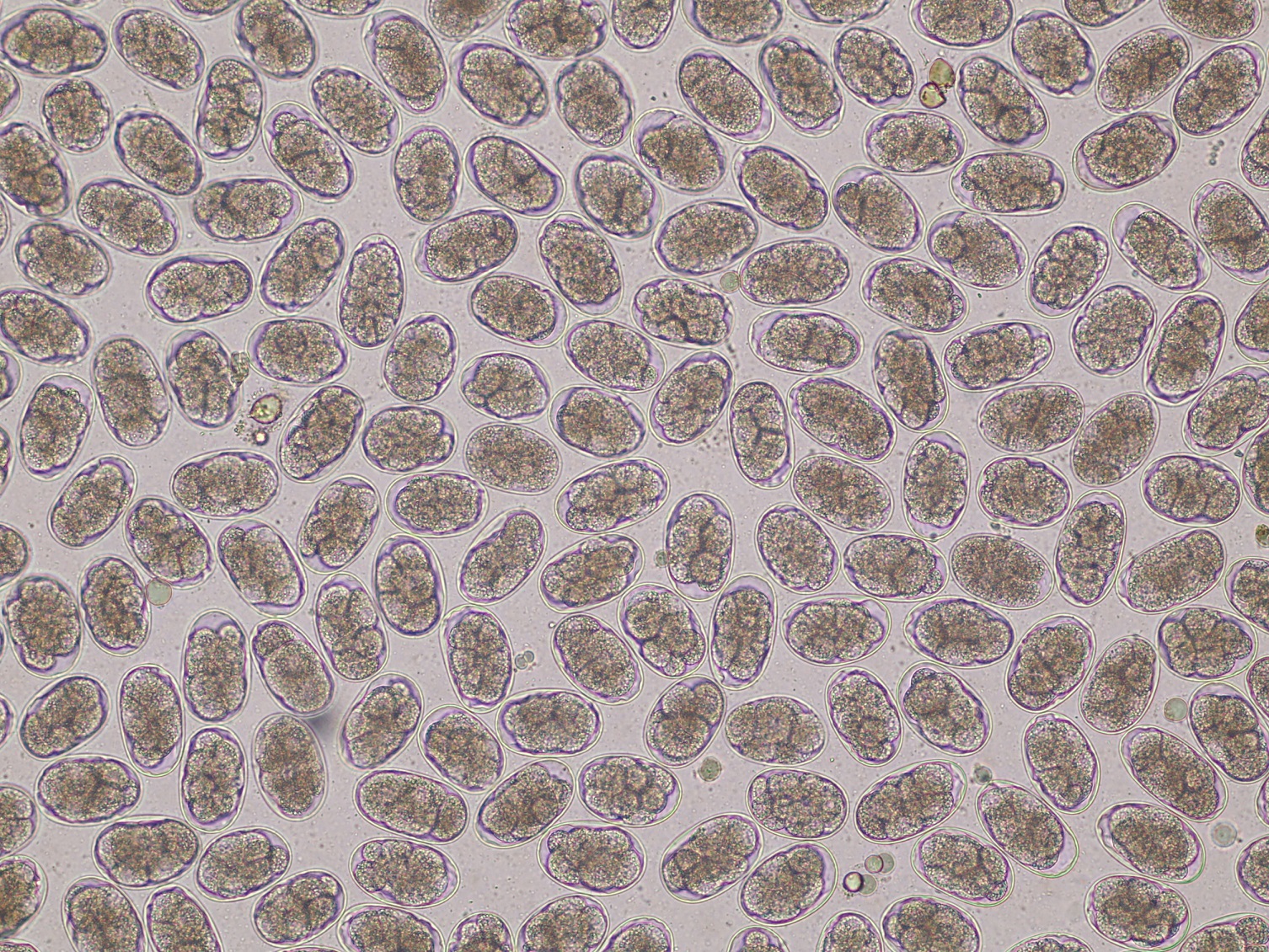Species: Cattle, sheep
Specimen: Faeces (minimum 3g)
Container: Plastic pottle
Collection protocol: Directly from rectum or freshly passed sample from clean surface
Special handling/shipping requirements: Samples may be refrigerated if there is any delay in sending for analysis (e.g. over weekend)
General information about the disease:
Fascioliasis in grazing ruminants in Australasia is caused by the trematode Fasciola hepatica. Infection occurs in wet, swampy areas and irrigated pastures. The fluke requires an intermediate host in the form of snails in the Lymnea genus. Development of eggs through to the infective metacercarial stage occurs mainly in spring and summer and the adult flukes live in the bile ducts. Disease may be acute or chronic, but mostly presents as ill thrift, loss of production, and anaemia in autumn and winter.
General information about when this test is indicated: Investigation of production loss, ill thrift, and anaemia in grazing ruminants in fluke risk areas. Fluke risk areas include the North Island, and the north and west of the South Island.
Comparison with other related tests:
In addition to fluke egg counts, a liver fluke ELISA is available to test individual serum samples, pooled serum samples, and bulk milk tank samples, and may be more useful for screening groups of animals.

